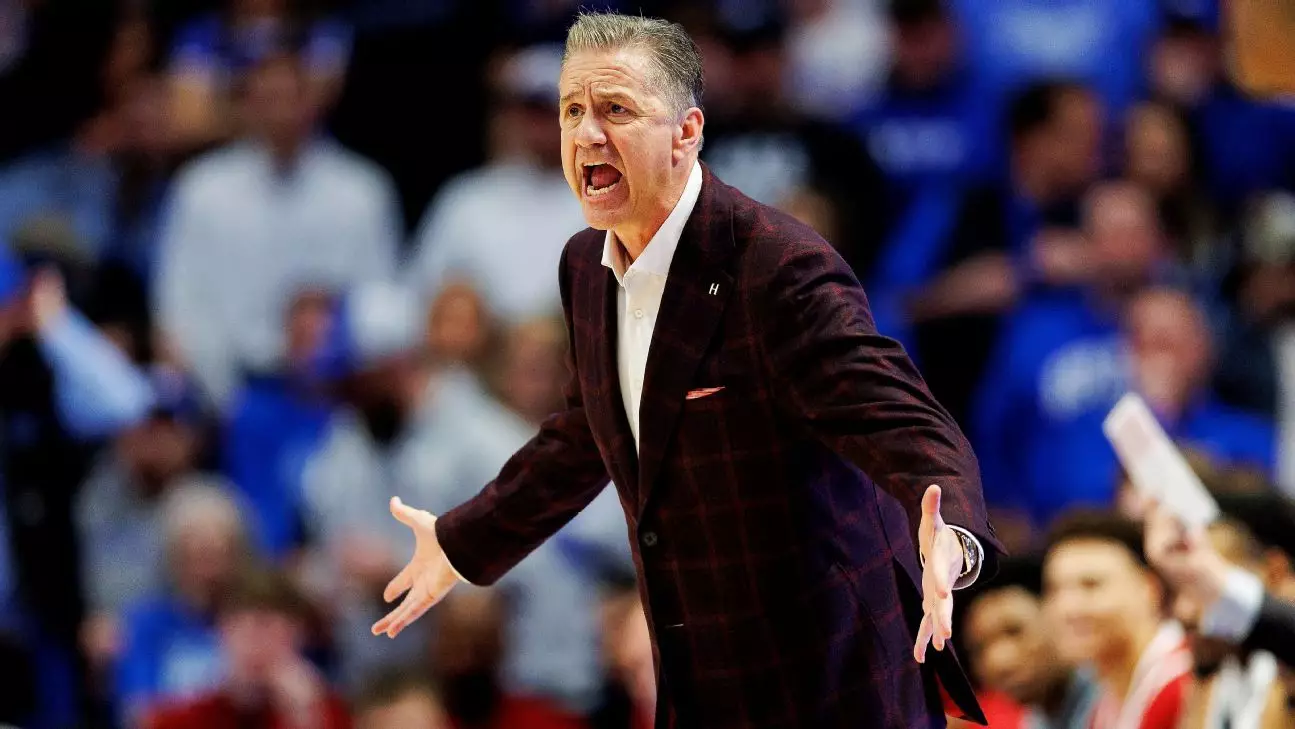In a much-anticipated return to Rupp Arena, John Calipari faced an emotional night filled with mixed feelings. The atmosphere was electric but divided, as the once-beloved Kentucky coach received a reception that melded boos with cheers. His return was highlighted by an upset as the Arkansas Razorbacks triumphed over No. 12 Kentucky 89-79, a stark reminder of the complexities of coaching transitions in college athletics. This clash held significant implications, not only for Calipari but also for the future of both programs and the narrative surrounding coaching changes.
The Razorbacks, now coached by Calipari, demonstrated they had grown into a formidable unit under his direction. Former Wildcats Adou Thiero, D.J. Wagner, and Zvonimir Ivisic each contributed significantly to the victory, combining for a remarkable 52 points. Thiero led the way with his career-high performance, showcasing an evolution that Calipari fostered during his tenure at Kentucky. The Razorbacks’ confident display was highlighted by their collective fearlessness, a point Calipari emphasized post-game. This ability to thrive amid pressure speaks volumes about the development of players under his guidance.
Conversely, for Kentucky, the loss marked the second consecutive home defeat, raising questions about the team’s mental fortitude and strategic preparations. Amari Williams showcased his abilities with a season-high 22 points along with 11 rebounds, yet even strong individual performances are rendered ineffective if the team fails to coalesce on the court. The loss deepens the scrutiny on Kentucky’s current coaching staff led by Mark Pope, especially when juxtaposed against Calipari’s previous era of dominance.
Calipari’s transition to Arkansas has been clouded with emotional weight. His fifteen years at Kentucky were characterized by numerous accolades, including a national championship. The emotional farewells and the professional challenges of rebuilding with a new team like Arkansas added layers to his Rupp Arena return. The acknowledgment of his past success intertwined with the stark reality of his present was palpable during the match, as the nostalgic memories both uplifted and haunted him. The recognition that cheering could swiftly turn into jeers illustrates the fragile relationship between coaches, fans, and the ever-intensifying pressure of performance.
His dialogue with former players Thiero, Wagner, and Ivisic before the game exemplified the strong bonds forged during his Kentucky tenure. The concern they expressed for him hints at the mutual respect that can exist between coach and player, which is not always the norm in collegiate sports. This relationship dynamics are essential in building resilient teams, capable of thriving in intimidating environments like Rupp Arena.
The fan response was not one-dimensional; a mixture of nostalgia for past successes juxtaposed against disappointment at recent losses resulted in an atmosphere charged with tension. Calipari’s admission that he struggled to keep track of which team was winning emphasizes the bizarre juxtaposition of loyalties that exists within sports. While he expressed pride in the achievements during his time leading the Wildcats, the dual loyalty felt among fans showcased the complex nature of collegiate athletics—where past coaches can become both figures of admiration and targets of discontent.
Mark Pope’s comments on Kentucky’s broader culture and its impact on the players further underscore this notion. Each game serves as an opportunity to embody the pride and expectations set forth by a storied program. The weight of weariness due to constant scrutiny and expectations from the fans complicates the coaching landscape, especially in a high-profile environment like Kentucky basketball.
As both teams move forward from this encounter, the implications are profound. Calipari’s Arkansas squad is now on the path toward potential success, while Kentucky’s recent slide presents challenges that could define their season. The trajectory of both programs will be scrutinized in the coming weeks, establishing a narrative that transcends this one game. A common thread lies in the resilience to adapt, overcome, and redefine succeed in the face of adversity. The emotional fabric of college basketball not only captivates audiences but also profoundly impacts the lives of players, coaches, and fans alike.

